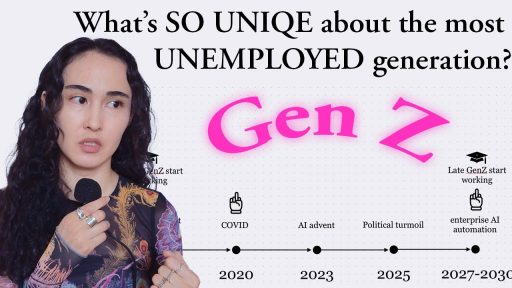There are several reasons why individuals, including students, may struggle to find industry work for school or after graduation, highlighting a complex set of factors at play:
<<< 1. Lack of experience >>>
Many entry-level positions and even internships require prior experience, creating a difficult paradox for students and recent graduates.
The focus on academic work in many institutions may not adequately equip students with the practical, job-ready skills that employers often seek.
This issue is particularly relevant for dual credit students who have a compressed college timeline, making it harder to balance coursework with gaining practical experience.
<<< 2. Competitive job market >>>
The number of internship opportunities has decreased while applications per position have surged.
This competitive environment is further impacted by factors such as economic uncertainty and a potential shift towards hiring experienced professionals rather than focusing on training new graduates, according to LinkedIn.
Recent graduates, including those in technical fields like finance and computer science, are facing an increasingly challenging labor market, with higher unemployment rates compared to previous years.
<<< 3. Employer expectations >>>
Employers may favor candidates who are “plug-and-play” and can contribute from day one, rather than investing in training new graduates.
There can be a disconnect between the skills taught in academia and the skills that are valued and needed in the workplace, according.
The rapid advancement of technology and the integration of AI may lead to evolving skill requirements for entry-level workers, leaving some graduates unprepared.
<<< 4. Challenges in the internship search >>>
Students cite a lack of time, concerns over pay, and limited opportunities as obstacles to securing internships, according to NACE.
Geographic barriers can also pose challenges, especially for students in remote locations, as quality placements may be limited.
Many employers rely on informal channels, such as professional connections, to find interns, which can disadvantage students without established networks.
<<< 5. Other contributing factors >>>
The overall economy and government policies can influence job availability and hiring trends.
Mismatched expectations regarding salary and benefits can also create barriers for job seekers, according to Career Concepts.
In some cases, students’ social media presence or past behaviors can negatively impact their job prospects, highlighting the importance of presenting oneself professionally.
In summary, the difficulty in finding industry work for students and graduates is a multifaceted problem influenced by a combination of factors related to experience, the job market, employer expectations, and challenges within the internship search process.

